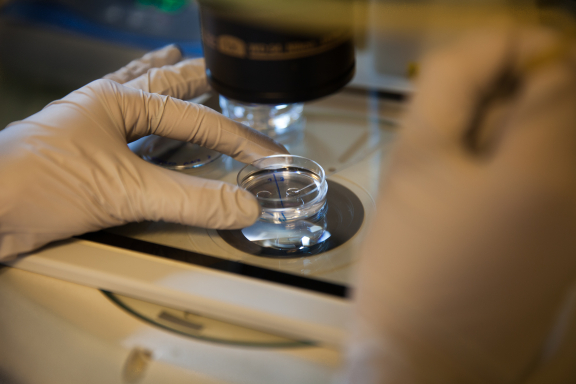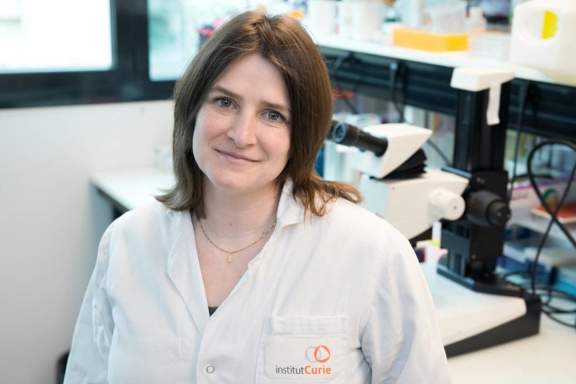Déborah Bourc'his
Déborah Bourc'his, Inserm research director, head of the "Epigenetic decisions and reproduction in mammals" team, Institut Curie, Paris Inserm website
- 2017 • Liliane Bettencourt Prize for Life Sciences



Beyond the gene: predicting interindividual variations
At her Institut Curie laboratory in Paris, Déborah Bourc’his explores the epigenetic mechanisms that impact mammalian reproduction. Genetic information does not stand by itself to determine neither the entire operation of a single cell, nor every heritable character of an organism. DNA is actually completed by marks called epigenetic marks, meaning « over the genes ». Amongst those marks, methylation patterns have to be added accurately for reproductive cells – that is, eggs and sperm – to be correctly generated. Standing at crossroads between generations, these cells are actually capable of transferring their own methylation to the embryo at the moment of fertilization: just like the genetic code, this parental information may influence the traits of the offspring, be they normal or pathological. In order to better understand the constant decline in fertility that affects industrialized countries, Déborah Bourc’his’ team investigates both the mechanisms that shape methylation patterns and their sensitivity to environmental factors.
The project supported by the Foundation plays out in two parts. In a first part, the team inquires into the essential role played by methylation for male fertility, upstream of fertilization. The team identified DNMT3C, an enzyme that very selectively methylates parasitic mobile genetic sequences called transposons. That methylation protects sperm cells against those rogue sequences’ unbridled activity. How are transposons selectively targeted for methylation? Are there other mechanisms for controlling transposons? Those questions will be addressed using proteomics and genetic screenings. In the second part, the scientists will examine the role played by methylation downstream of fertilization. In particular, they will look at the epigenetic influence exerted by our parents on our characteristics, through genomic imprinting.
Among other things, the team is interested in the irreversible programing of height, which is determined by that mechanism within the very first days of an embryo’s life. The results of this research could be essential for fighting the negative effects of inadequate maternal diets and endocrine disruptors.
Liliane Bettencourt Prize for Life Sciences
The Liliane Bettencourt Prize for Life Sciences rewards each year a researcher under the age of 45 for the excellence of their work and their remarkable contribution to their field of scientific research. This prize is awarded, depending on the year, to a researcher based in France or working in another European country. Thirty winners have been awarded since 1997. From 2023, prize rewards the laureate up to 100,000 euros.
All the award-winnersCall for applications
The 2025 edition of the prize will be awarded to a European researcher working in France. The call for candidates among selected scientists will be launched from January 6 to February 28, 2025. Nominated candidates will be invited to submit their applications between March 3 and April 21, 2025.
